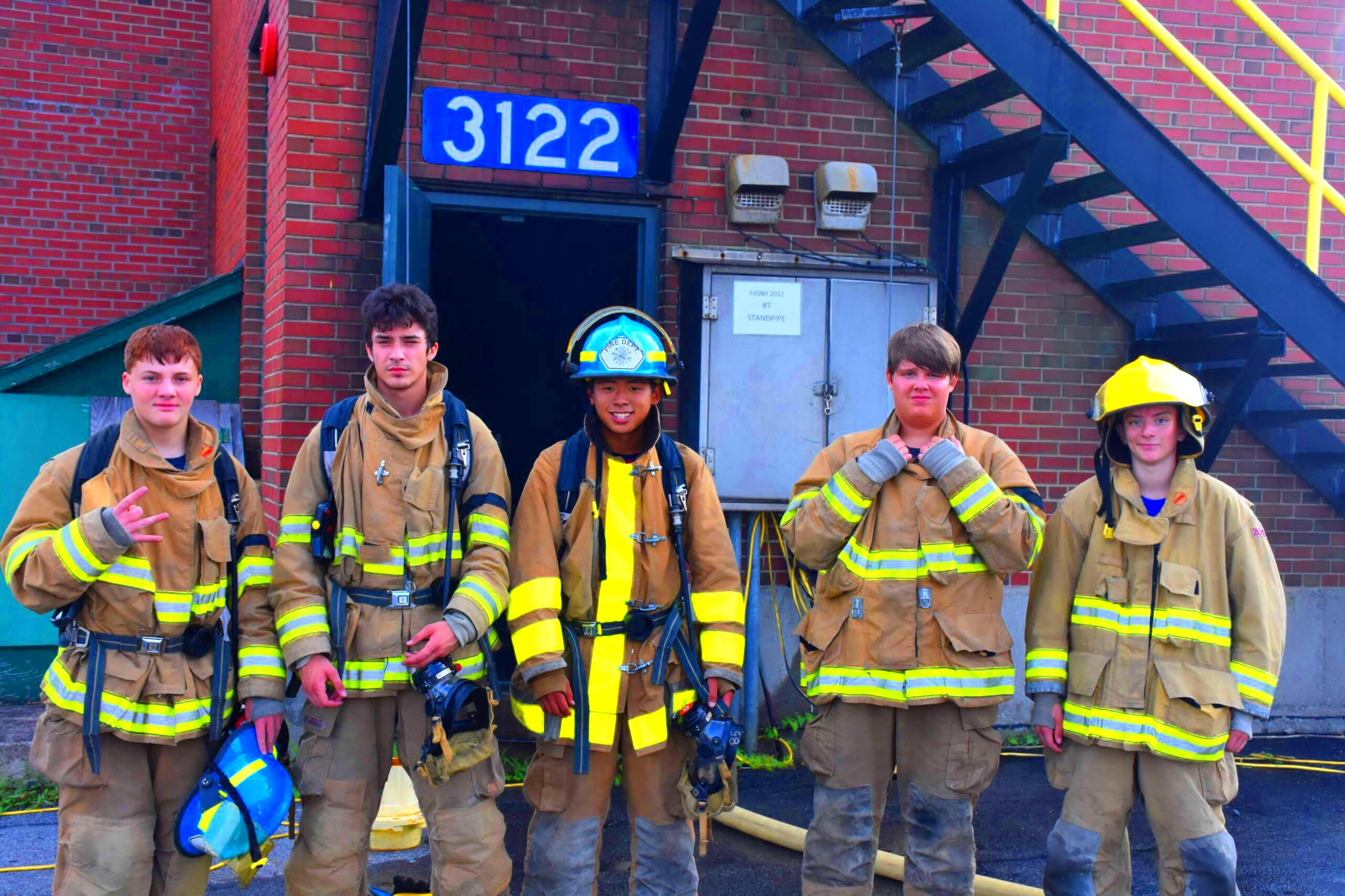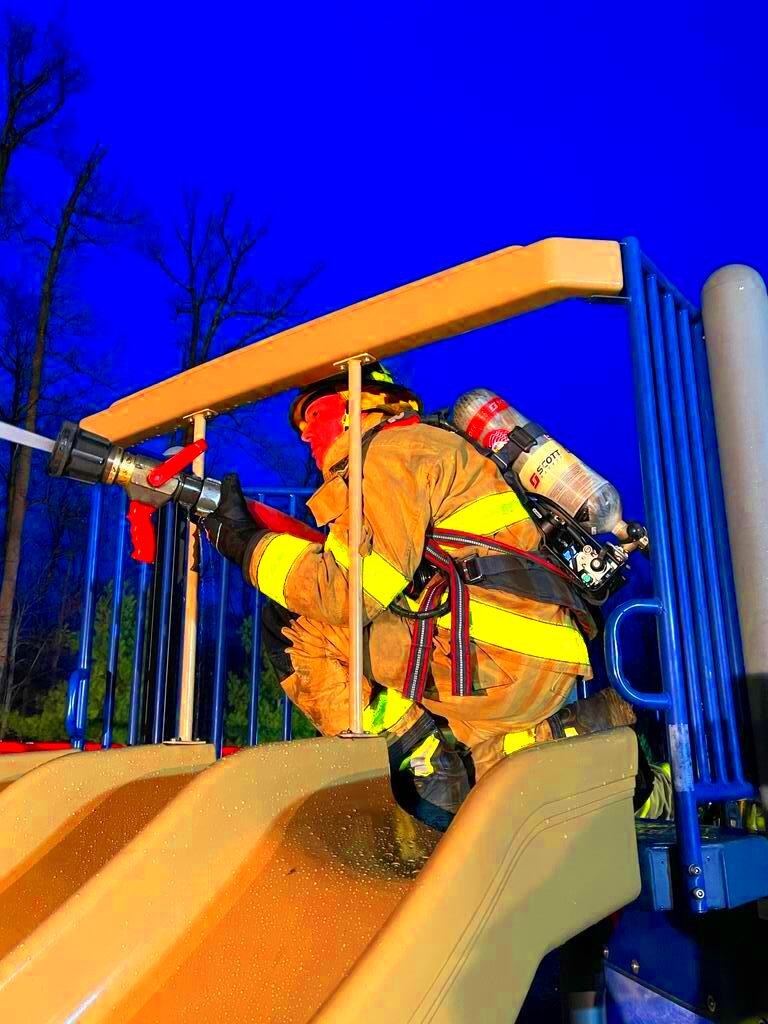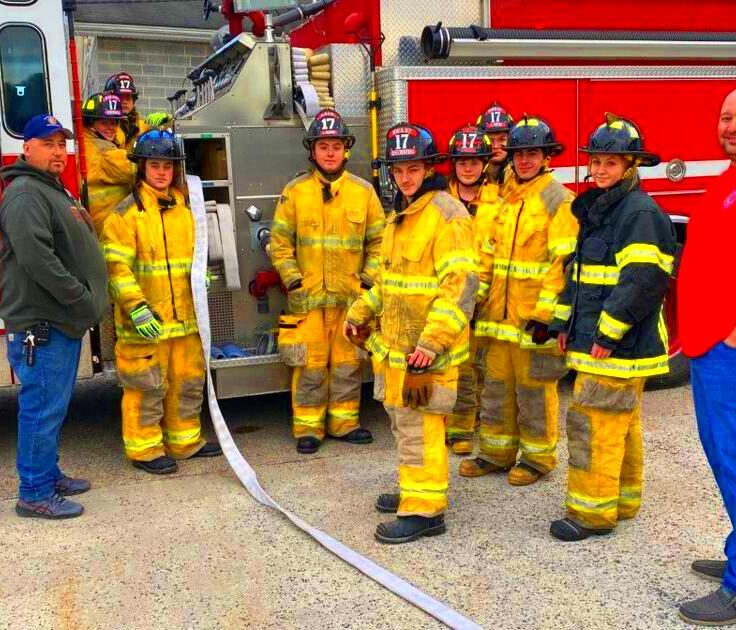Understanding Junior Firefighter Laws in Pennsylvania
In Pennsylvania junior firefighter programs give youth an opportunity to engage with the firefighting profession before they meet the age requirement to become full firefighters. These initiatives go beyond teaching firefighting skills; they aim to instill a sense of community, accountability and preparedness in young participants. As a child I looked up to the firefighters in my area, wishing to join their ranks. Junior firefighter programs bring that vision within reach for teens by offering them training and hands on experience that paves the way for a future career in firefighting or emergency response services.
Eligibility Requirements for Junior Firefighters

To qualify for the position of a firefighter in Pennsylvania, applicants must fulfill specific conditions. Typically these prerequisites involve
- Age: Applicants usually need to be between 14 and 17 years old. Some departments may have slightly different age requirements.
- Academic Standing: Good academic performance is often required. Junior firefighters must typically maintain a minimum GPA.
- Physical Fitness: Basic physical fitness is important. While rigorous fitness tests aren’t always required, being in good health is crucial.
- Parental Consent: Since junior firefighters are minors, they need written consent from their parents or guardians.
- Background Check: A clean criminal background is necessary to ensure the safety and integrity of the program.
These criteria make sure that those taking part are both skilled and devoted. I remember a buddy of mine who became a firefighter; his commitment shone through in his ability to juggle academics, training and giving back to the community serving as an inspiration for others.
Roles and Responsibilities of Junior Firefighters
Junior firefighters are assigned tasks and responsibilities to help them get ready for their future roles as professional firefighters. Some of their duties involve.
- Assisting in Training Drills: They participate in training exercises, learning about fire safety, equipment, and emergency response.
- Helping with Community Outreach: Junior firefighters often engage in community service, such as fire prevention education programs and safety demonstrations.
- Supporting Firefighters at Events: They assist at fire department events and fundraisers, gaining experience and contributing to the team’s efforts.
- Maintaining Equipment: Keeping firefighting gear and equipment in good condition is a key responsibility.
- Learning Emergency Protocols: They become familiar with emergency response procedures, helping them understand the critical nature of their future roles.
These positions assist youth in developing crucial abilities needed by firefighters. Witnessing the commitment of young firefighters in my area has shown me how it not only improves their individual competencies but also bolsters the fire department. Its an enriching experience brimming with knowledge acquisition and self improvement.
Training and Education for Junior Firefighters

The process of shaping a junior firefighter’s path heavily relies on training and education. In Pennsylvania these initiatives are carefully crafted to equip youth with the skills needed for the role of a firefighter. Through a combination of practical training and classroom instruction the educational journey is thorough and captivating.
Typically, the training includes:
- Firefighting Basics: Junior firefighters learn about fire behavior, equipment, and the fundamentals of fire suppression. It’s like piecing together a complex puzzle—each training session reveals another crucial part.
- First Aid and CPR: They are trained in basic first aid and CPR, essential skills for anyone in emergency services. This training empowers them to respond effectively in crisis situations.
- Safety Protocols: Emphasis is placed on safety protocols, ensuring they understand the importance of following procedures to protect themselves and others.
- Firehouse Operations: They gain practical experience in the day-to-day operations of a firehouse, from maintaining equipment to supporting senior firefighters.
Looking back on my journey I can still feel the thrill of being in that firefighting class for the first time. The mix of concepts and hands on activities really brought the learning to life. For aspiring firefighters these training sessions hold significance; they’re like building blocks that pave the way for a future filled with commitment and service.
Safety Regulations and Protocols
In the realm of firefighting safety takes precedence even for junior firefighters. It is essential to follow safety rules and procedures to safeguard their well being and maintain the effectiveness of the fire service.
Some key safety measures include:
- Protective Gear: Junior firefighters must wear appropriate protective clothing, including helmets, gloves, and boots, to safeguard against hazards.
- Supervision: They are always supervised by experienced firefighters during training and emergency responses to ensure their safety.
- Emergency Procedures: Familiarity with emergency procedures is essential. They must understand evacuation routes, emergency communication, and incident command systems.
- Health and Fitness: Maintaining good physical health is important. Regular fitness checks and health assessments are part of the program to ensure they are fit for duty.
Reflecting on my training experience, the emphasis on safety was always at the forefront. Every precautionary step was deeply ingrained in us to ensure that our actions were intentional and secure. For rookie firefighters these guidelines go beyond mere regulations; they are essential procedures that have the potential to save lives someday.
Legal Protections and Limitations
In Pennsylvania junior firefighters are safeguarded by specific laws aimed at ensuring their safety and welfare while also acknowledging the constraints of their responsibilities. It is crucial for both the young firefighters and their families to grasp these legal elements.
Essential safeguards and restrictions in the legal realm encompass.
- Work Hours: Junior firefighters are typically restricted in the number of hours they can work, particularly during school hours, to ensure they do not interfere with their education.
- Scope of Activities: Their participation in actual emergency responses is limited. They are generally involved in support roles rather than direct firefighting activities.
- Insurance and Liability: Fire departments usually provide insurance coverage for junior firefighters. However, the extent of this coverage and liability protection can vary, so it is crucial to understand the specifics.
- Parental Consent: Parental or guardian consent is required for all activities, ensuring that families are fully informed and involved in the junior firefighter’s journey.
In my experience the support offered to rookie firefighters was comforting. It let us concentrate on honing our skills and making a contribution without unnecessary stress. These rules play a role in balancing the eagerness of firefighters with the realities of their responsibilities to ensure a safe and fulfilling journey.
How to Join a Junior Firefighter Program
Becoming a member of a junior firefighter program is an thrilling opportunity for young people who are enthusiastic about serving their community and working in the fire service. If you’re looking to join this special program in Pennsylvania here’s an easy roadmap to help you kick off your journey.
Here are the steps to follow:
- Research Local Programs: Begin by researching junior firefighter programs offered by local fire departments. Each department may have different requirements and opportunities.
- Contact the Fire Department: Reach out to the fire department you’re interested in. They can provide details about the application process, program specifics, and any upcoming informational sessions.
- Complete the Application: Fill out the application form, which typically includes personal information, academic records, and a parental consent form. Be honest and thorough in your responses.
- Attend an Interview: Some programs may require an interview. This is your chance to express your enthusiasm and explain why you want to join. I remember my own interview; it was a blend of excitement and nervousness, but it was an opportunity to showcase my dedication.
- Participate in Orientation: If accepted, you’ll attend an orientation session where you’ll learn about program expectations, meet fellow juniors, and get an overview of your training.
- Start Training: Once orientation is complete, you’ll begin your training. This is where the real adventure starts—learning, growing, and becoming part of the firefighting community.
Every stage of this journey is meant to prepare you for the duties and benefits that come with being a junior firefighter. I started my path with a question and it turned into an experience and I have no doubt that yours will be equally fulfilling.
Challenges and Benefits of Being a Junior Firefighter
Serving as a firefighter in training comes with its fair share of obstacles and advantages. It requires commitment but also brings along priceless rewards and enriching moments.
Here are some common challenges:
- Balancing Responsibilities: Juggling school, extracurricular activities, and junior firefighter duties can be demanding. Time management becomes crucial, and sometimes it feels like a tightrope walk.
- Physical and Emotional Demands: The training can be physically demanding, and dealing with emergency situations might be emotionally challenging. It’s important to stay resilient and focused.
- Meeting Expectations: There’s often a lot of pressure to meet the expectations of both the fire department and oneself. Striving for excellence while managing stress is a common experience.
In spite of these obstacles, the advantages are significant.
- Skill Development: You’ll develop valuable skills, including first aid, teamwork, and emergency response techniques. These skills are not only useful in firefighting but also in everyday life.
- Community Impact: Being a junior firefighter allows you to make a tangible difference in your community. There’s a deep sense of satisfaction in contributing to public safety.
- Career Insights: The experience provides a glimpse into a firefighting career, helping you decide if it’s a path you want to pursue further.
- Personal Growth: The challenges you overcome and the responsibilities you take on contribute to your personal growth, building confidence, resilience, and a strong work ethic.
Looking back on my experiences I found that the difficulties were overshadowed by the amazing advantages. This journey molded my character and instilled in me a feeling of direction. If youre contemplating this route the benefits greatly outweigh the obstacles.
FAQ
What age do you have to be to join a junior firefighter program?
Typically, you need to be between 14 and 17 years old. Each department might have specific age requirements, so it’s best to check with the local fire department.
Can junior firefighters participate in actual emergency responses?
Junior firefighters are usually involved in support roles rather than direct firefighting. Their participation in emergency responses is limited to ensure their safety.
Do I need any prior experience to join?
No prior experience is required. Junior firefighter programs are designed to teach you everything you need to know, from the basics of firefighting to emergency response techniques.
How much time do I need to commit to the program?
The commitment can vary depending on the program. Generally, you will need to balance training sessions, community service, and meetings with your regular schoolwork and activities.
Is there any cost associated with joining a junior firefighter program?
Most junior firefighter programs are free or low-cost. Some departments may ask for a small fee for uniforms or equipment, but financial concerns should not be a barrier. Reach out to the department for specifics.
Enrolling in a junior firefighter initiative presents an exceptional chance for both self improvement and career development. Should you have further inquiries or seek assistance feel free to reach out to your nearby fire station as they are available to support you on your journey.
Conclusion
Joining a junior firefighter program in Pennsylvania is not just an opportunity to learn about firefighting but also a chance to grow as an individual and give back to your community. The experience offers valuable lessons ranging from fire safety and emergency protocols to fostering teamwork and responsibility. I recall how my own time in the program influenced my perspective on service and leadership imparting lessons that went beyond the walls of the firehouse. The challenges you encounter will shape your character while the rewards will enrich your life in ways. If you have a genuine passion for helping others and a wish to make an impact taking on a junior firefighter role can be an incredibly transformative journey. So why not take that leap, embrace the adventure ahead and become part of something bigger than yourself?


